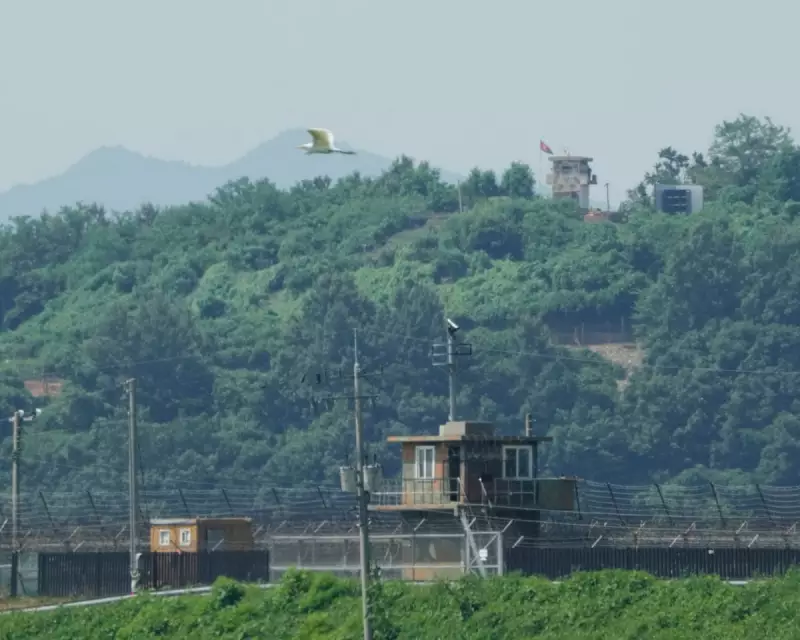
A dangerous new flashpoint has erupted on the world's most heavily fortified border, threatening to destabilise the fragile peace on the Korean Peninsula. North Korea has launched a furious accusation against South Korea, alleging a 'deliberate and premeditated provocation' after Southern troops fired warning shots at Northern soldiers who briefly crossed the demarcation line.
The incident, which occurred in the demilitarised zone (DMZ) on Friday, has sent tensions soaring. According to South Korea's Joint Chiefs of Staff (JCS), several North Korean soldiers transgressed the military demarcation line near the border town of Paju. The JCS stated that its forces issued warning broadcasts before firing shots to drive them back, insisting the response was standard procedure.
However, Pyongyang's state media has presented a starkly different narrative. A statement from the Korean People's Army (KPA) condemned the South's actions as a 'reckless military provocation' and claimed the border crossing was unintentional, caused by soldiers conducting routine duties in an area with unclear terrain features.
A History of Heightened Tensions
This confrontation occurs amidst a period of significantly worsened relations. Diplomatic efforts have stalled, and North Korea has recently intensified its weapons testing programme, including launching multiple ballistic missiles. In response, South Korea has strengthened its military cooperation with the United States and Japan.
Analysts suggest that such border incidents, while not uncommon, are particularly volatile now. 'Any miscalculation or miscommunication in the DMZ can escalate rapidly,' said Dr. Lee, a peninsula security expert. 'The current climate of hostility reduces the margin for error, making these encounters extremely dangerous.'
The International Response
The international community is monitoring the situation closely. The United Nations Command, which oversees the Korean War armistice, is likely to investigate the incident. World leaders have consistently called for calm and a return to dialogue, but a lasting resolution remains elusive.
This latest episode serves as a stark reminder that the Cold War-era conflict on the Korean peninsula is still far from over, with the potential for a minor incident to spiral into a major confrontation.





